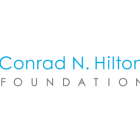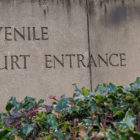
Crossover youth, as young adults with dual involvement in foster care and juvenile justice systems are called, face a variety of challenges when entering adulthood, and they carry a high public cost. That is according to the first-ever study of youth in foster care and on probation in Los Angeles County. Although it’s widely known that crossover youth are worse off than other youth, this study — Young Adult Outcomes of Youth Exiting Dependent or Delinquent Care in Los Angeles County, which was funded by the Conrad N. Hilton Foundation — shows that crossover youth experience negative outcomes at twice the rate. “We didn’t realize crossover youth would have such striking distance,” Dennis Culhane, a professor at the University of Pennsylvania and one of the study’s six authors, told Youth Today. “We knew it would find they’d be troubled, but didn't expect this difference of degree to show up.”
Currently, according to examined data from 2002 to 2009, crossover youth cost about three times more public service dollars than youth who are only in foster care.


